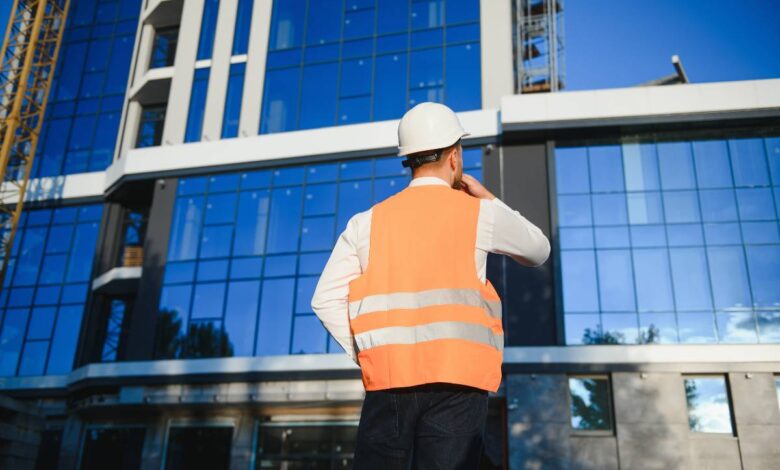The Critical Role of Security in Modern Commercial Leasing

In the ever-evolving world of business, companies of all sizes must prioritize the safety and protection of their operations. As more businesses move to hybrid models or seek new operational bases, leasing commercial space is becoming a central part of many organizational strategies. But beyond size, design, or location, there’s one critical factor often overlooked: security.
When a business leases commercial property, it is not just acquiring square footage—it’s investing in the infrastructure that will support its growth, protect its assets, and ensure business continuity. For that reason, the concept of a secure space for lease is gaining traction across industries. Whether a company deals in technology, retail, manufacturing, or finance, the security of its physical space has never been more important.
This article explores why businesses should prioritize security when leasing commercial properties, what constitutes a secure space, and how the right decision can lead to long-term advantages.
Understanding the Importance of Secure Leasing
The need for secure commercial space is not just a reaction to rising crime rates or isolated incidents. It’s a proactive strategy to safeguard business interests against a wide range of threats. These may include theft, cyber-attacks, vandalism, natural disasters, and unauthorized access.
A secure facility acts as the first line of defense for a company’s data, equipment, inventory, and staff. As businesses increasingly rely on sensitive customer information and proprietary technologies, the security of their operational base becomes a critical aspect of brand integrity and legal compliance.
Furthermore, having a secure space for lease doesn’t only provide protection—it signals to stakeholders that your business is trustworthy, resilient, and forward-thinking.
What Defines a Secure Commercial Space?
The term “secure” in a leasing context spans a broad spectrum of physical, digital, and procedural safeguards. Here are some of the key elements that define a truly secure leased space:
1. Controlled Access Systems
Security begins at the door. Modern secure spaces often feature access control systems that restrict entry to authorized personnel only. These systems may include keycard entry, biometric scanners, PIN pads, or mobile-based access.
A layered access approach (e.g., secure lobby, restricted work areas, locked storage) ensures that different areas are accessible based on user roles, thereby limiting risk exposure.
2. 24/7 Surveillance and Monitoring
CCTV cameras, motion sensors, and on-site security personnel offer constant monitoring. Beyond just recording incidents, many systems now feature AI-powered surveillance that can detect suspicious behavior in real time.
The presence of cameras also acts as a deterrent, discouraging unauthorized individuals from attempting to enter the premises.
3. Data Security and Infrastructure
In the digital age, physical space must also support data protection. This includes secure server rooms, redundant power sources, firewalls, and secure network connections. For companies storing sensitive information, such facilities are not optional—they are essential.
The right lease should include infrastructure that meets or exceeds industry data security standards.
4. Fire and Emergency Systems
Every secure facility should have comprehensive fire suppression systems, emergency exits, and disaster-preparedness protocols. Smoke detectors, sprinklers, and backup power systems are standard components of a safety-first approach.
Some properties also feature safe rooms or secure storage vaults for high-value equipment or documents.
5. Maintenance and Property Management
Security also relies on consistent upkeep. Properties managed by reputable firms are regularly inspected, maintained, and upgraded to prevent vulnerabilities. A well-managed facility is less likely to suffer from infrastructure-related failures that can compromise safety.
The Business Case for Investing in Security
While premium features like surveillance and advanced access systems might come at a higher rental cost, the long-term benefits far outweigh the initial investment. Businesses that lease secure spaces often benefit from:
1. Lower Insurance Premiums
Insurance companies view well-secured properties as lower risk. This can lead to reduced premiums on commercial property, contents, and liability coverage.
2. Higher Staff Productivity and Morale
Employees perform better when they feel safe. Knowing that the workplace is monitored and protected helps to reduce stress, absenteeism, and even employee turnover.
3. Enhanced Customer Confidence
If clients visit your physical location—whether it’s a showroom, office, or warehouse—they expect safety and professionalism. A secure facility adds credibility to your brand and reassures clients that you’re protecting their data and transactions.
4. Regulatory Compliance
Many industries are subject to strict regulations regarding physical and digital security. Leasing a space that already meets these standards can save significant costs and effort related to retrofitting or penalties.
How to Choose the Right Secure Lease
When evaluating potential leases, the security features of a property should be given just as much attention as its cost or location. Here’s what to consider during your search:
Ask the Right Questions:
- Who manages the property, and what is their track record?
- Are there dedicated security personnel on site?
- How often is the security equipment inspected or updated?
- Are fire and disaster-prevention systems fully compliant with current codes?
- Is there cybersecurity infrastructure, such as secured data rooms or encrypted networks?
Conduct a Risk Assessment:
Before signing a lease, bring in a third-party security consultant or risk assessor. They can help identify potential vulnerabilities and determine whether the property meets your security requirements.
Check for Flexibility:
Your business may grow or change focus over time. Choose a lease that offers scalable security—one that can accommodate new systems, added personnel, or changing compliance standards without major renovations or disruptions.
Industries That Benefit Most from Secure Leases
While every business benefits from a secure lease, some industries have a heightened need due to the nature of their operations. These include:
- Healthcare and Medical Clinics: To protect patient records and controlled substances.
- Financial Institutions: Where data breaches and physical theft are high-risk.
- E-commerce and Warehousing: To prevent inventory loss and ensure delivery timelines.
- Technology Startups: Often working on proprietary IP or housing expensive equipment.
- Legal Firms: Where confidentiality and document integrity are paramount.
For these sectors, a secure space for lease isn’t just an option—it’s a necessity.
The Future of Secure Leasing
As technology continues to evolve, so too will the expectations around commercial security. Smart buildings, AI-powered monitoring, and IoT-enabled security systems will become standard in modern commercial spaces.
We may soon see leases that include cybersecurity services bundled into rent or biometric access as a basic amenity. In this environment, businesses that prioritize security now will find themselves ahead of the curve, ready to adapt to whatever challenges the future holds.
Conclusion
Choosing a secure commercial lease is one of the most important decisions a business can make. Beyond just square footage, a lease should offer peace of mind, operational stability, and protection against threats that could derail your progress. Security is no longer a luxury—it’s a necessity for businesses in every industry.
By selecting a secure space for lease, companies not only protect their assets and people but also lay the foundation for sustainable, compliant, and confident growth.




